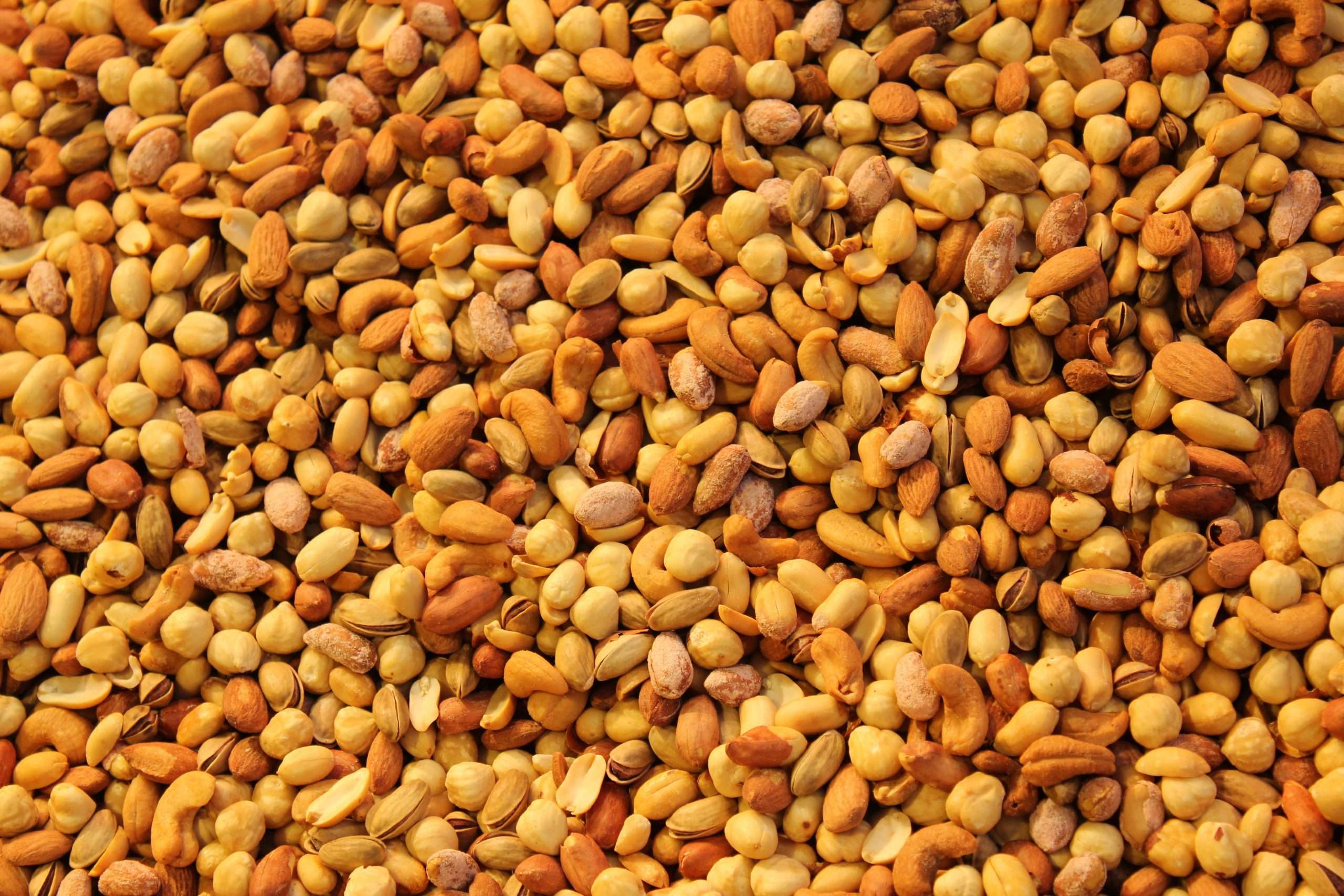Healthy nuts...and we are not talking about psychopaths who hang out at the local gym! These delicious snacks - especially raw tree nuts like cashews, almonds and walnuts have been linked to better heart health, weight loss and control, lower cholesterol and lower risk of developing cancer!
The problem is that we Americans eat too few of these healthy nuts on a regular basis to gain any of the benefits they would provide. Nuts have gotten a bad name due to the misinterpretation that they are fattening or that they contain bad saturated fats. Read on and be informed:
- 1 / 9 Walnuts: Fight Inflammation
- Serving info: About 7 walnuts = 180 calories, 17 grams fat
- 2 / 9 Almonds: Good for Digestive Health
Containing the most antioxidants and omega-3 fatty acids of any other nut, walnuts help us by protecting our bodies from internal damage and inflammation that leads to cancer, premature aging and heart disease. Walnuts are excellent for those of us who do not like fish as they contain the same healthy omega-3 fatty acids as fish do without the fishy flavor! Lastly, the manganese content can help to reduce PMS symptoms which can be great for both men and women if you know what I mean!
Coming in at around three grams of fiber per ounce, almonds are a great source of fiber and have the highest content of vitamin E when compared to other nuts. Almonds have also been found to help maintain a healthy weight and promote weight loss. Almonds have been shown to decrease bad LDL cholesterol levels and can increase the levels of healthy bacteria in our intestines which boost our immune system efficiency.
- Serving info: Roughly 23 almonds = 170 calories, 15 grams fat
3 / 9 Cashews: Increase Brainpower
Rich in zinc and iron, cashews can help to prevent anemia, boost immune health and good vision. Cashews are also an excellent source of magnesium which improves memory function and guards against memory loss related to aging.
- Serving info: 18 nuts = approximately 165 calories, 13 grams fat
4 / 9 Pecans: For Healthy Arteries
Pecans are loaded with antioxidants which helps prevent plaque buildup in your arteries. They also lower bad LDL cholesterol by around 30 percent when eaten regularly. These healthy nuts can improve brain function and overall health and are packed with vitamin E which can fight off the onset and progression of neurological diseases like ALS.
- Serving info: About 18 halves = 200 calories, 20 grams fat
5 / 9 Brazil Nuts: Protects us from Cancer
Brazil nuts are bursting with the mineral selenium which helps fight against cancers of the prostate, bone and breast. These nuts inhibit the growth of prostate cancer in men, but watch your overall intake as high levels of selenium can become harmful to the human body. Keep your intake to about one serving or less to be safe.
- Serving info: 5 to 6 nuts = 185 cals, 18 grams fat
6 / 9 Macadamia Nuts: The Most Monounsaturated Fats
While macadamia nuts may be the most calorie-dense they also hold the most monounsaturated fats per serving of any other nuts. These MUFA's lower bad LDL cholesterol and lower blood pressure. Macadamia nuts also lower triglyceride levels and overall cholesterol by around 10 percent when added to your daily diet.
- Serving info: About 10 nuts = 200 cals, 22 grams fat
7 / 9 Pistachios: The Skinny
Pistachios have less than 4 calories each and the effort their shells make us put forth just to crack them can make these tasty nuts the most diet friendly of the bunch. They can be difficult to crack and this effort in just getting the the actual nut slows our consumption pace and allows the body to feel full before we have eaten too many. These nuts have also been linked to a decreased lung cancer risk due to their high levels of gamma-tocopherol (vitamin E). Pistachios are also loaded with potassium and are a great source of vitamin B6 which can enhance your mood and your immune system.
Serving info: About 50 nuts = 160 cals, 14 grams fat.






